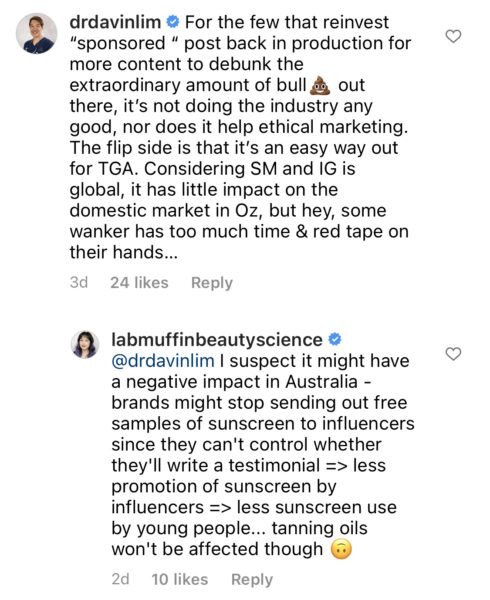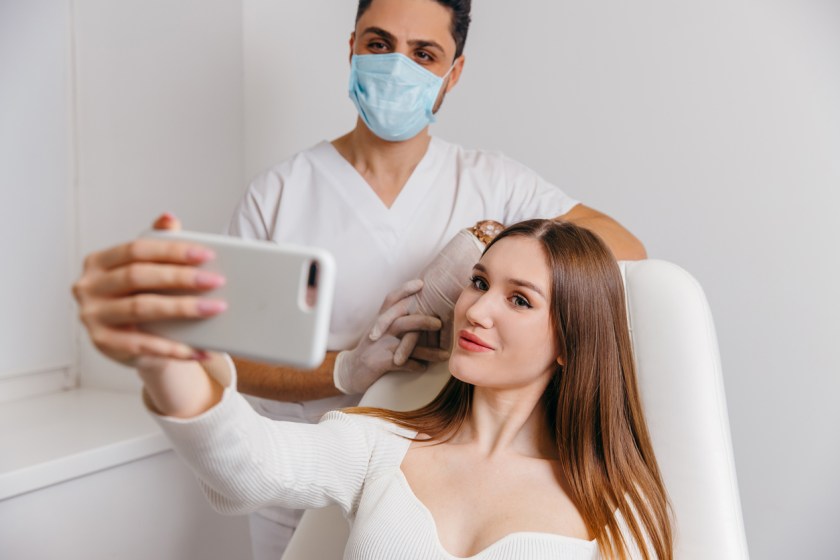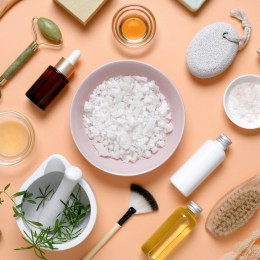We break down the new rules, what this means for your business and what the industry is saying about the new TGA social media guidelines.
By now, you’ve no doubt heard that the Australian Therapeutic Goods Administration (TGA) has introduced a new social media advertising guide that restricts influencers from receiving payment or samples in return for product endorsement. The code is set to come into effect on July 1, 2022.
The chaos started after The Australian broke the story over the weekend, announcing the “influencer promotion ban” in an article titled “Influencers will be banned from receiving perks such as cash or samples to promote skincare, and other health products.” There has been much ado after the clickbait that was circling and this has left many business and brand owners, as well as influencers, feeling uncertain about what this may mean for them and their business when it comes to influencer marketing.
On closer inspection, this so-called “ban” isn’t as detrimental as it first seems. So we’ve done the research and are here to bring you the key points of the TGA influencer code and how to follow the guidelines.
What are the new rules?
First of all, it’s important to know that the act only applies to therapeutic goods. These are defined under three main categories, according to the TGA website:
- Medicines: including prescription, over-the-counter and complementary medicines, such as paracetamol and echinacea.
- Biologicals: something made from or containing human cells or tissues, such as human stem cells or skin.
- Medical devices: including instruments, implants and appliances, such as pacemakers and sterile bandages.
This includes medicines and medical devices, vitamins and cosmeceuticals such as acne treatments and sunscreen — basically any product that has to undergo TGA approval. It does not include cosmetics.
The code does not completely “ban” influencers from endorsing a gifted product, but it restricts them from providing testimonials for how the product works for them.
These guidelines were announced by the TGA last year and are currently encouraged, but will come into full effect from July 1. By this time, all previous influencer posts endorsing therapeutic goods will need to be removed from social media.
Can brands and businesses still use influencer marketing?
Absolutely. Brands will still be able to collaborate with influencers including experts and brand ambassadors. The key change is that these influencers cannot speak about their personal experience with a product that falls under the therapeutic goods category.
The TGA has now clarified that businesses can still incorporate influencers into their marketing strategy so long as the person does not provide a personal account, including before and after photos.
However, testimonials from customers and other people who have received no incentive (such as a gifted product and/or payment) are still legal.
What do industry experts think about the ban?
There are a lot of mixed emotions – many of which can be attributed to sensationalised headlines. But a lot of independent brands and businesses are concerned that it may have a detrimental effect on the livelihoods of small businesses and content creators, the majority of whom are women.
On The Australian’s original viral Instagram post, Dr Davin Lim wrote “For the few that reinvest “sponsored” posts back in production for more content to debunk the extraordinary amount of bullshit out there, it’s not doing the industry any good, nor does it help ethical marketing.”
Cosmetic chemist and skincare educator Michelle Wong agreed, highlighting that “less promotion of sunscreen = less sunscreen use by young people.”

Jessy Marshall, founder of beauty, fashion and lifestyle PR agency Hive HQ, previously worked as a skin therapist and now has many clients who may be affected by the new TGA code. Marshall works with leading beauty brands such as Naked Sundays, tbh skincare, RAWKANVAS and Bangn Body. But for Marshall, the news isn’t as bad as it seems.
“The update is not as doom and gloom as the original article suggested, and only restricts influencers from providing testimonials about certain products,” she says. “Of course it will impact the market, and both content creators and brands should be aware of the changes, but it hasn’t created a blanket prohibition — there is still room to operate.”
Marshall sees this change as an opportunity for brands to take on a new direction and rethink the bounds of influencer marketing: “What needs more rigorous attention from brands and creators is how they speak about TGA approved products and what wording is seen as a testimonial. Like all changes, this is an opportunity for more brands to innovate and produce more creative marketing in the industry.”
All brands and business partners should review the TGA legislation and seek qualified legal clarification to fully understand what the change means for them.
For the full code, visit the TGA’s website.
DID YOU KNOW
There are 5 ways you can catch up with SPA+CLINIC?
- Our quarterly print magazine, delivered to your door. Subscribe here.
- Our website, which is updated daily with its own completely unique content and breaking news.
- Our weekly newsletter – free to your inbox! Subscribe here.
- Our digital magazine – click here to view previous issues.
- Our social media – see daily updates on our Instagram, Facebook & Linkedin





